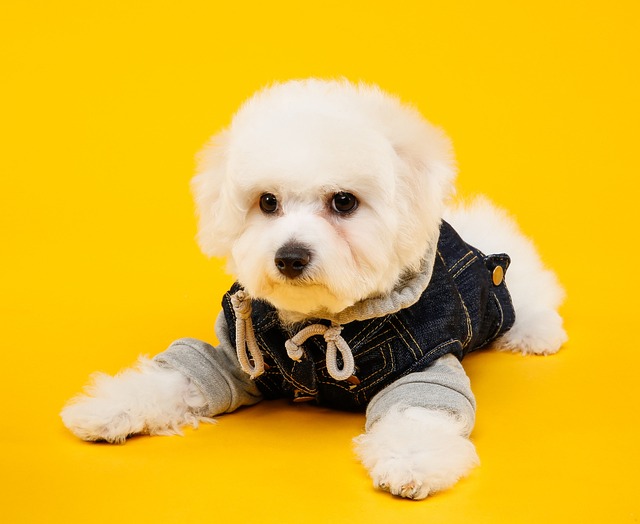
How can I tell if my dog's heatstroke is serious
Let’s be real: It’s a sticky August morning in Los Angeles, and you took your 2-year-old Golden Retriever, Max, for a walk a little later than usual
Bichon Frise, with their fluffy white coats and playful personalities, are beloved companions in many households. But their small size and sensitive digestive systems mean certain foods that might be fine for other breeds can pose serious risks. Knowing what to keep out of their bowls isn’t just about keeping them healthy—it’s also about staying on the right side of local animal welfare laws, which in many places require owners to provide safe, appropriate nutrition.
Chocolate tops the list of dangers. Even a small square of dark chocolate can trigger vomiting, seizures, or worse in a Bichon. A friend in London learned this the hard way last winter when her pup snuck a bite of a holiday truffle; the emergency vet bill and 48-hour monitoring stay were costly lessons. Theobromine, the compound in chocolate, metabolizes slowly in dogs, leading to potential heart issues.
 Grapes and raisins are another hidden hazard, even in small quantities. A Florida Bichon owner once shared how her dog nibbled on a handful of trail mix left on the coffee table, resulting in sudden kidney failure. Veterinarians still aren’t sure exactly what causes the reaction, but the correlation is well-documented. It’s not worth the risk—keep fruit bowls out of paw’s reach.
Grapes and raisins are another hidden hazard, even in small quantities. A Florida Bichon owner once shared how her dog nibbled on a handful of trail mix left on the coffee table, resulting in sudden kidney failure. Veterinarians still aren’t sure exactly what causes the reaction, but the correlation is well-documented. It’s not worth the risk—keep fruit bowls out of paw’s reach.
Onions and garlic, whether raw, cooked, or powdered, contain compounds that damage red blood cells, leading to anemia. This is especially dangerous for Bichons, whose small stature means even a little can cause big problems. A home-cooked meal with a sprinkle of onion powder might seem harmless, but for these pups, it could mean lethargy, weakness, or the need for a blood transfusion. Many European countries have strict guidelines about table scraps for pets, and for good reason.
Xylitol, a sugar substitute found in sugar-free gum, candy, and even some peanut butters, is a silent threat. It causes a rapid drop in blood sugar, leading to seizures or liver failure. A Bichon in Ontario made headlines last year after getting into a pack of sugar-free mints; quick action from the owner and emergency care saved his life, but it’s a scenario best avoided entirely. Always check labels—even products marketed as “pet-friendly” might contain hidden xylitol.
Protecting your Bichon means being vigilant about these foods, but also understanding that their curiosity can get the best of them. Keep countertops clear, secure pantry doors, and educate anyone who spends time with your pup about these risks. After all, a healthy Bichon is a happy one—prancing through the park, curling up on the couch, and bringing joy to every day. And staying informed isn’t just responsible pet ownership; in many regions, it’s part of complying with laws designed to protect our four-legged family members.

Let’s be real: It’s a sticky August morning in Los Angeles, and you took your 2-year-old Golden Retriever, Max, for a walk a little later than usual

You're enjoying a summer afternoon at the park when you notice your dog has stopped panting and appears disoriented - their gums are bright red

Let’s paint the picture: You’re in your Denver apartment, watching your 4-year-old Boston Terrier, Ruby, plop down mid-play session with her favorite toy

Many dog owners notice their pets nails seem shorter after regular walks,but how much does this daily activity actually help?The answer depends on where you walk—concrete sidewalks or asphalt streets gently file nails as a dog's paws hit the ground

Most dog owners notice their pup scooting across the carpet at some point, but few connect it to impacted anal glands. These small sacs near a dog’s rectum secrete a scent for marking territory

Most vets agree that regular dog teeth cleaning is key to avoiding painful dental issues later. For healthy adult dogs, a professional cleaning at the vet’s office every 12 to 18 months usually works well.